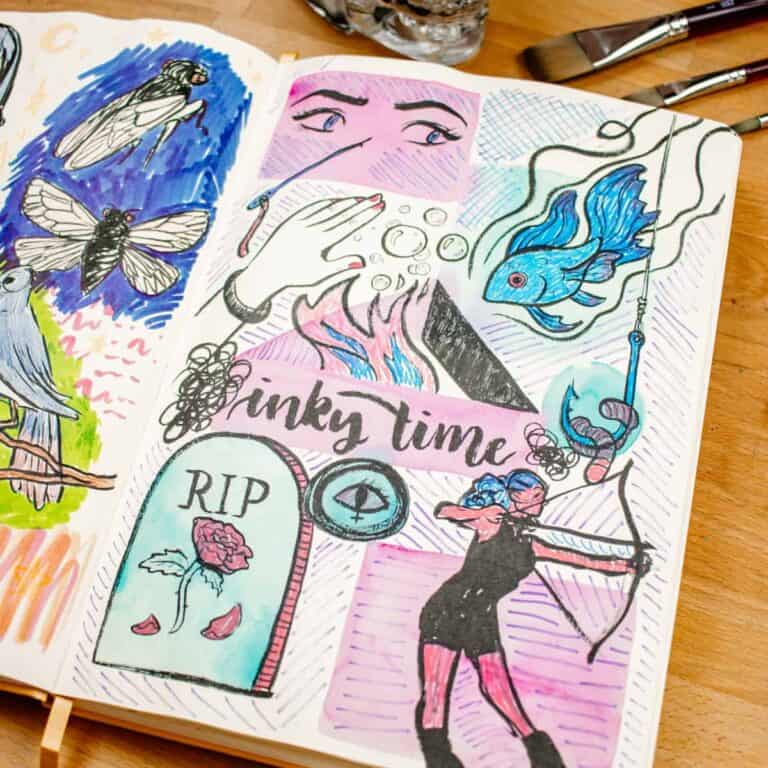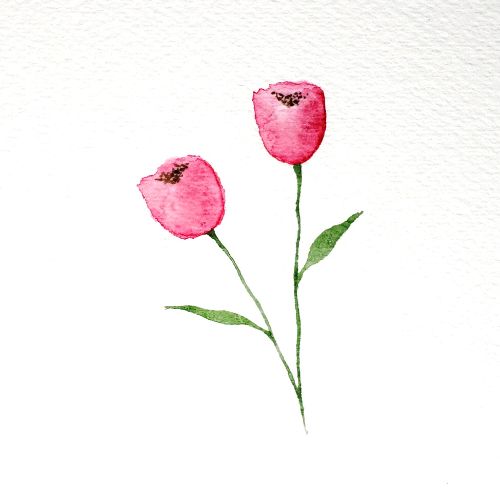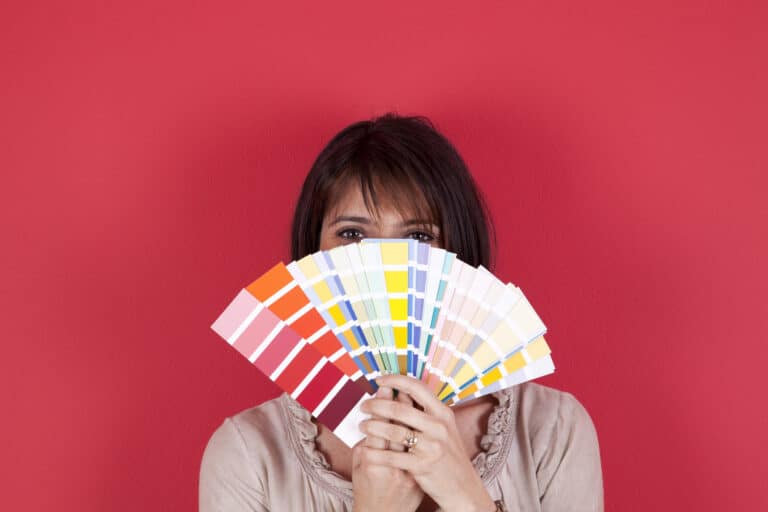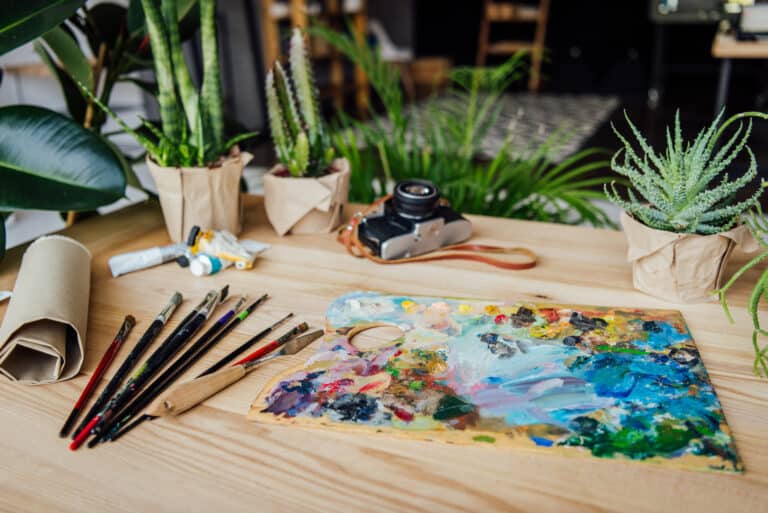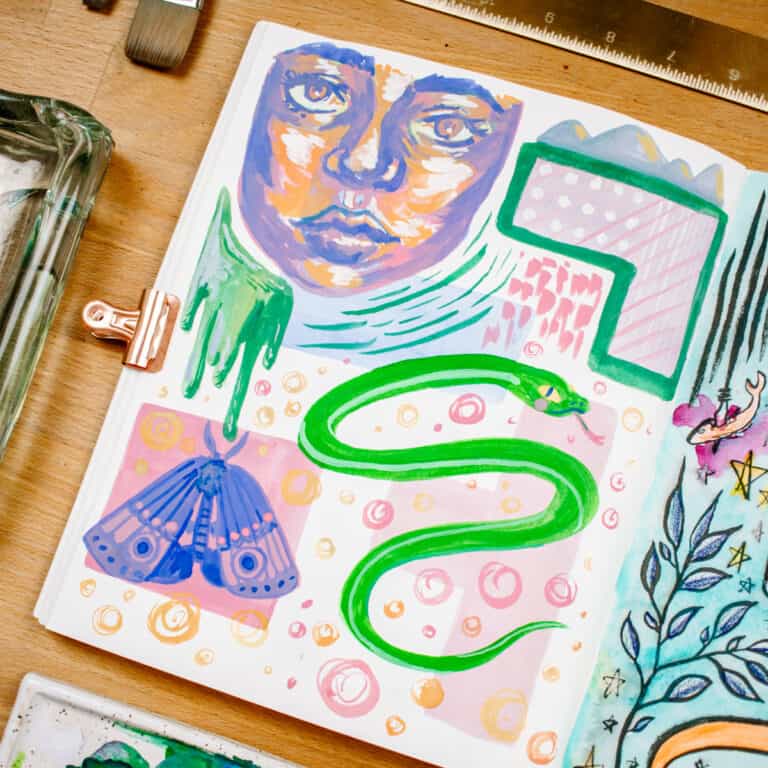Making the Case for Making Mistakes: Fighting Perfectionism in Art
When perfectionism in art becomes a chronic problem, it can negatively impact your progress and artistic development.
Therefore, it can be argued that perfectionism is an artist’s worst enemy.
For instance, you may develop a fear of making mistakes because you’re afraid that your artwork will be criticized or judged.
The problem is that if you never make mistakes, you never learn from them.
But it doesn’t have to be this way. In fact, making mistakes can be a blessing in disguise.

What is Perfectionism in Art?
Are artists perfectionists?
Yes, many are. In fact, the art community is filled with perfectionists.
Perfectionism in art causes artists to obsess over little details. This obsession often prevents them from making progress because they’re too afraid to make mistakes. But without making mistakes, they don’t learn how to develop their artistic skills and grow as artists.
For example, an artist may take forever finishing a watercolor and ink artwork because they obsess over the small details when combining both mediums.
Another way to look at this problem is to identify the connection between perfectionism and procrastination.
This is due to the fact that perfectionists often take a long time to complete their artwork, which delays them from actually developing or improving their skills.
In other words, artists need to make sure that perfectionism does not get in the way of their performance.

Is Perfectionism Good in Art?
When perfectionism becomes a problem, it hinders an artist’s progress and development.
As a whole, perfectionism is not good in art because it often leads artists to develop unrealistic expectations and high standards for their artwork. When these lofty standards aren’t met, artists fall into patterns of self-criticism and analysis paralysis. As well, they often develop fears.
It’s interesting to note that fear is commonly associated with artists who are perfectionists. For example, many artists struggle with:
- Fear of failure
- Being scared of making mistakes
- Fear of criticism or judgement
- Feeling overwhelmed by the blank page
- Being afraid of wasting art supplies
In all these cases, fear stunts the artist’s growth and prevents them from becoming the successful artist they aspire to be.
Professional watercolor artist Shelby Abrahamsen—co-founder of the art education platform Foxsy—offers great advice in her online course Paint the Page: Dive Into Watercolor Journaling With Confidence:
“Done, not perfect.”
Essentially, Shelby explains that in order to conquer fear and stop being a perfectionist in art, you must understand that creating imperfect artwork is more beneficial to your artistic growth than struggling to achieve flawless perfection.

How Do Artists Deal with Perfectionism?
Fortunately, anyone can learn how to stop being a perfectionist in art. Here are three helpful ways to overcome this habit.
First, if you suffer from analysis paralysis, you must learn to let go and trust in your abilities.
Stop worrying about the outcome. Instead, be intentional with your work and enjoy the creative process by learning how to make intuitive art.
Second, identify any limiting beliefs relating to your artistry. Start by asking yourself these questions:
- Am I afraid of something, such as failure or criticism?
- Do I lack self-confidence in my artistic abilities?
- Is my ego getting in the way of my potential?
Whatever the reason, identify it and then make peace with it. Journal about it or engage in art therapy as a means of releasing your deepest emotions and insecurities.
Third, determine if you suffer from external pressure such as you might receive from your parents, friends, or social media followers.
Learn to love your artwork and not rely on external validation. Your creativity (and your mental health) will thank you.
